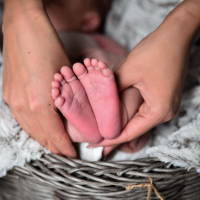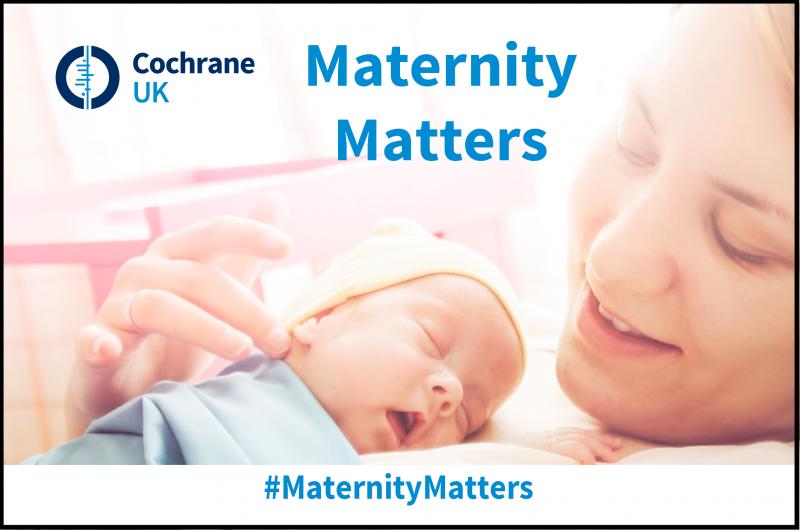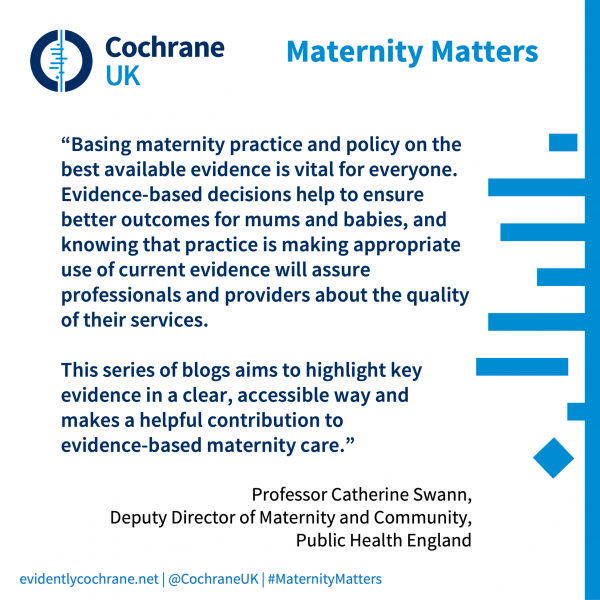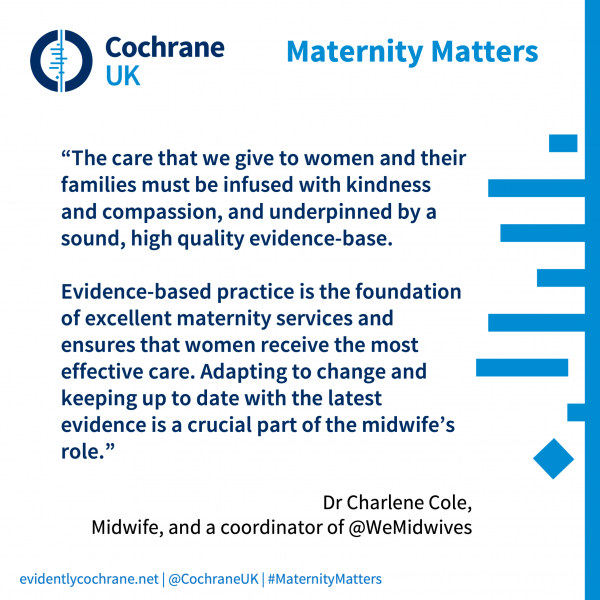
In August 2019, we launched a month-long special series, 'Maternity Matters', on Evidently Cochrane.
Maternity Matters is a special series of blogs and other resources, including graphics and podcasts, sharing some of the latest evidence on women's and babies' health, from pregnancy through to the early days after birth.
The series is for people going through pregnancy and childbirth; midwives, student midwives as well as other health professionals and student health professionals supporting people through pregnancy and childbirth. The content focuses on NHS priorities on maternity and highlights new Cochrane Reviews or research.
The blogs look at risk reduction in pregnancy with new Cochrane Reviews on smoking cessation and vitamin D; on women’s experiences and particular needs in pregnancy after recurrent miscarriage and after stillbirth; on continuity of care; continuous support during labour; and on managing the third stage of labour (delivering the placenta).

Professor Catherine Swann (@cjswannPHE), Deputy Director of Maternity and Community at Public Health England, welcomed the series:

Dr Charlene Cole (@charlMidwife), one of three midwives who co-ordinate the @WeMidwives tweetchats, has also commented on the importance of sharing and discussing the best available evidence and its implications for practice:

Find all of the blogs and materials below:
- Maternity Matters: a special series from Cochrane UK. This blog introduces Maternity Matters and outlines what you can expect from the series.
- Breastfeeding: A round up of Cochrane evidence. A collection of resources, including graphics, podcasts and more, which aim to make the evidence on breastfeeding easily accessible.
- Recurrent miscarriage and early pregnancy: learning from women’s experiences. Sarah Bailey, a clinical research specialist, shares what their research group has learned from women about their experiences of early pregnancy after recurrent miscarriage, as they look to develop better support services.
- Pregnancy after stillbirth: experience and evidence gaps. Susannah Hopkins Leisher shares her experience of the trauma of stillbirth and impact on subsequent pregnancies and, with researcher Aleena Wojcieszek, looks at gaps in the evidence on how to care for such women and their families.
- Implementing midwife-led continuity models of care and what do we still need to find out? Researchers and Cochrane authors Jane Sandall, Hora Soltani, Andrew Shennan and Declane Devane look at evidence and practice on midwife-led continuity of care.
- Implementing continuous support for women during labour and childbirth. In this blog for midwives, Meghan Bohren (Lecturer in Gender and Women’s Health at the University of Melbourne) revisits the latest Cochrane evidence on continuous support for women during labour and childbirth and reflects on what can affect the implementation of labour companionship.
- What helps women to quit smoking while pregnant? Cochrane authors Jonathan Livingstone-Banks and Catherine Chamberlain look at the evidence on what can help women who want to quit smoking in pregnancy.
- Vitamin D supplements in pregnancy: what’s the latest evidence? In this blog for pregnant women, Emily Carter, Cochrane UK Fellow and Obstetrics and Gynaecology Registrar, looks at the latest Cochrane evidence on Vitamin D supplementation in pregnancy and how it may help reduce risks for mums and babies in the UK.
- The third stage of labour: active or expectant management of care? In this blog for midwives, Linda Biesty (midwife and member of the review team) looks at the latest Cochrane evidence on the third stage of labour and whether it is better to offer active or expectant management of care to women for the birth of the placenta.
On Tuesday 3rd September from 8-9pm (GMT), we co-hosted a 'tweetchat' (a discussion on Twitter) with the WeMidwives Community using the hashtag #MaternityMatters. This was an opportunity to reflect on the series content and discuss evidence-based maternity care. Further details can be found here.
Learn more about Cochrane UK, the Cochrane Pregnancy and Childbirth Group, the Cochrane Neonatal Group, the Cochrane Children and Families Network and the Cochrane Child Health Field.
